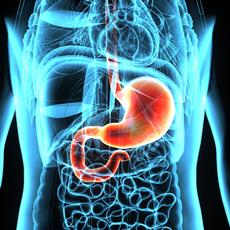
Gastric Disorders

Summary
Your stomach is an organ between your esophagus and small intestine. It is where digestion of protein begins. The stomach has three tasks. It stores swallowed food. It mixes the food with stomach acids. Then it sends the mixture on to the small intestine.
Most people have a problem with their stomach at one time or another. Indigestion and heartburn are common problems. You can relieve some stomach problems with over-the-counter medicines and lifestyle changes, such as avoiding fatty foods or eating more slowly. Other problems like peptic ulcers or GERD require medical attention.
You should see a doctor if you have any of the following:
- Blood when you have a bowel movement
- Severe abdominal pain
- Heartburn not relieved by antacids
- Unintended weight loss
- Ongoing vomiting or diarrhea
NIH: National Institute of Diabetes and Digestive and Kidney Diseases
Source: MedlinePlus, National Library of Medicine.
Information pulled from the Stomach Disorders page.
MedlinePlus brings together authoritative health information from the National Library of Medicine (NLM), the National Institutes of Health (NIH), and other government agencies and health-related organizations.
Barium Swallow
National Library of Medicine
Gastric Emptying Tests
National Library of Medicine
Upper GI Endoscopy
National Institute of Diabetes and Digestive and Kidney Diseases
Upper GI Series
National Institute of Diabetes and Digestive and Kidney Diseases
Gastrectomy - series
Medical Encyclopedia
Listen to our
latest Podcast!




